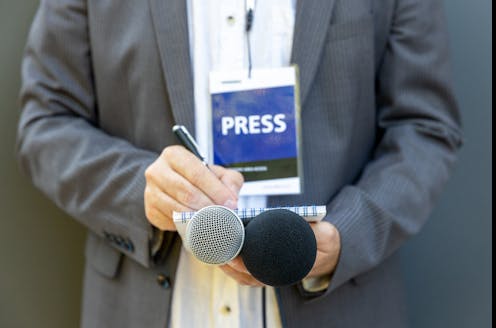Let's turn down the dial on conflict and focus on solutions
- Written by Misha Ketchell, Editor, The Conversation

Is Australia’s political system doing a good job of serving its citizens? If not, how can we help it work better?
These questions have become even more pressing in recent months. The war in Gaza has spilled over to Australia, bringing new animosity and a threat to our social cohesion. The defeat of the Voice referendum has shaken confidence in the capacity of our political system to meet the needs of Indigenous citizens for better lives and political recognition. Progress on climate change seems unacceptably slow. Meanwhile, fuelled by social media, a steady stream of populism is rushing our way.
In dealing with all of this, the role of the media is crucial. But is it really helping? Stan Grant quit the ABC this year when he came to fear that being part of the media made him part of the problem. In his new role at Monash University, he will be working on constructive journalism. Which makes you think: precisely when did we see the emergence of such a thing as unconstructive journalism? Why do we tolerate it? How much damage has it done?
Since its creation in 2011, The Conversation has been dedicated to producing a style of journalism that swims against the tide of clickbait and hot takes. Our non-partisan articles draw on the expertise of academics to help inform public debate. We want to help our democracy work by making public deliberations more civil, more constructive and better informed.
In our own modest way, we are trying to turn down the dial on conflict and contribute to a more cohesive society. It’s slow work, but it also feels like we are part of a movement of people who understand nothing is made better by snarky social media or angry opinions.
Increasingly, colleagues in the media are republishing our thoughtful explanatory articles. Universities in Australia and New Zealand and across the world have embraced the idea of entering the public square to share research and help inform decisions. And our growing community of readers and donors is passionate and eager to help.
That’s been the most encouraging thing in a tough year, the reminder that people do care and are willing to do something about it. Thank you to everyone who has helped The Conversation make a difference in 2023, from the selfless academic authors to the volunteers who serve on our boards, to the thousands of readers who respond to our surveys and help us shape our editorial offering.
And finally an important request: if you value what we do and you can see how it helps, please consider signing up to become a regular monthly donor[1]. We are grateful for every donation, but monthly contributions are especially important because they sustain our independence and help us plan for the future, and we need 600 more before the end of the year to reach our goal. Please consider signing up as a monthly donor of whatever you can afford.
Thank you for reading, and here’s to a more peaceful, kind and constructive 2024.
Comments are open on this article. Let us know what you think about how journalism can be more constructive.
References
- ^ signing up to become a regular monthly donor (donate.theconversation.com)
Read more https://theconversation.com/lets-turn-down-the-dial-on-conflict-and-focus-on-solutions-218693

















